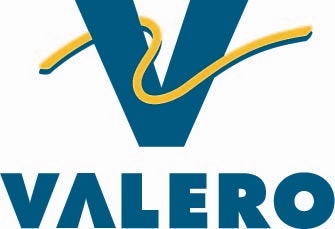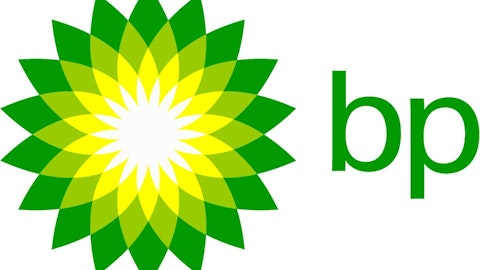In a recent interesting article by the Fool it was asked and answered why gas prices won’t break the $5 a gallon mark anytime soon. The author made some interesting and convincing arguments; however, based on the recent developments in the oil market, gasoline price might resume their rally and break the $4 a gallon mark in the coming months. Let’s examine the recent developments in the gasoline market and see why this could become a reality.
Will oil pass $100, again?
This will be the main (and obvious) driving force behind the rise in gas prices – the price of oil. The chart below shows the weekly changes in gasoline and oil prices over the past several years.

Source of Data: EIA
As indicated above, the correlation between the two price sets is very strong. Moreover, the price of oil accounts for 65% of the price of gas. So for every 1% gain in oil price, gasoline price will increase by 0.65%.
To analyze the oil market let’s examine the oil supply and demand.
From the supply side, in the U.S, oil production slowly declined in recent weeks and oil imports are still low compared to last year. OPEC’s oil production remained stable in recent months, but it could change course if the situation in the Middle East erupts again.
From the demand side, the International Energy Agency projects the growth in demand will decline compared to previous estimates. On the other hand, recent reports (including GDP growth and manufacturing conditions surveys) from China and the U.S – the two leading importers of oil – suggest these economies are slowly progressing, which could eventually lead to a rise in demand. Based on the above, oil price could start to pick up in the coming months and pass the $100 mark, which will bring gas prices closer to the $4 mark.
Even though oil prices might rise in the coming months, during 2013 (year-to-date) the price of oil declined by more than 7% compared to the same time frame in 2012. The drop in oil prices adversely affected leading oil companies such as Chevron Corporation (NYSE:CVX); the company’s gross profit margin fell by 0.8% to 32.1% in the first quarter of 2013. Moreover, net sales declined by 6.4% (year-over-year).
Despite the drop in revenue, the company might bounce back in the coming quarters. The recent win the company’s subsidiary had in Argentina’s high courts could pave its way to develop shale oil in the country. Moreover, if the price for oil starts to pick up, it will positively affect the company’s revenue.
Refineries profits
Another factor that affects gasoline prices is refinery costs and profits that account for roughly 13% of the price of gas. Distribution and marketing account for additional 10%. Refinery companies such as Valero Energy Corporation (NYSE:VLO) haven’t benefited from the drop in oil and gas prices as the company’s net sales fell by 4.8% during the first quarter of 2013. On the other hand, Valero Energy Corporation (NYSE:VLO)’s gross profit margin rose from 6.1% in the first quarter of 2012 to 8.3% in the first quarter of 2013. Valero Energy Corporation (NYSE:VLO)’s rise in profit margin was driven by a rise in refining throughput margins; their increase was due to the rise in margins for diesel and jet fuel and higher discounts on oil.
Marathon Petroleum Corp (NYSE:MPC) also experienced a rise in its profit margin as it rose from 7.4% in the first quarter of 2012 to 7.6%. The company’s moderate rise in profitability was partly driven by Speedway’s higher fuel margins. Speedway is Marathon Petroleum Corp (NYSE:MPC)’s subsidiary and operates a chain of gas stations.
Furthermore, this company’s revenue also rose by 15.4% during the first quarter of 2013 (year-over-year). But the company’s growth in sales was mainly driven by its acquisition of the Galveston Bay refinery at the beginning of February.
If these leading refineries and other refinery companies were to raise their profit margins, this could pressure gasoline prices higher. Nonetheless, since refinery costs account for only 13% of the total price of gasoline, the effect of rising profit margins or costs of refinery companies will be very marginal. For every 1% gain in the cost of refineries, the price of gasoline, assuming all things equal, will rise by 0.13%.
Is the demand for gasoline falling?
According to the recent retail sales report for May (opens pdf), gasoline station sales declined by 0.9% in the first five months of 2013 (year-on-year). Moreover, in May, gasoline station sales dwindled by 0.2% (month-over-month). Was the decline in sales related to the drop in gasoline prices?
The average price of gasoline declined by 2.5% during the first five months of 2013 compared to last year. Furthermore, the average weekly consumption of gasoline slipped by 0.2% during the first five months of 2013. Therefore, most of the drop in sales was related to declines in gas prices.
Nonetheless, the demand could pick up if the U.S economy continues to grow at a faster pace. In the first quarter of 2013, U.S GDP grew by 2.5%, which is a faster pace than in the same quarter in 2012. The drop in demand for gasoline in the first quarter of 2013 also had an adverse effect on sales of companies such as Chevron Corporation (NYSE:CVX), which has gas stations throughout the U.S.
The third rail – taxes
I will just mention that taxes account for roughly 12% of the price of gasoline. Even though U.S policymakers are trying to find ways of cutting the budget deficit, I think it’s safe to say they will stay clear from hiking gas prices.
Take away
Based on the above, gasoline prices might resume their rally and perhaps even break the $4 mark if the demand for oil pick ups, OPEC changes its oil production quota, imports to the U.S dwindle, or refinery costs rise.
The article Will Gas Prices Hit $4 a Gallon? originally appeared on Fool.com and is written by Lior Cohen.
Lior Cohen has no position in any stocks mentioned. The Motley Fool recommends Chevron. Lior is a member of The Motley Fool Blog Network — entries represent the personal opinion of the blogger and are not formally edited.
Copyright © 1995 – 2013 The Motley Fool, LLC. All rights reserved. The Motley Fool has a disclosure policy.






